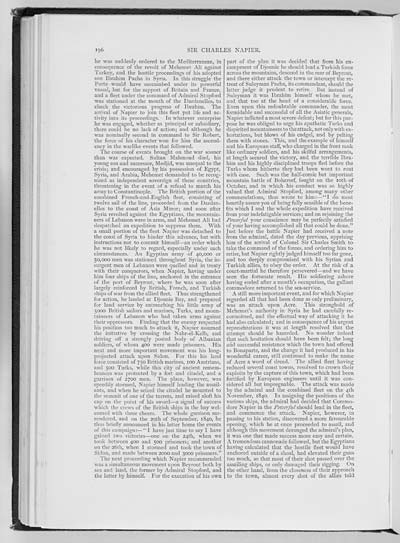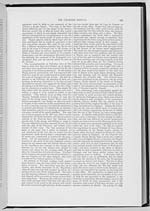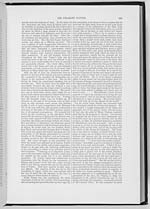196
he was suddenly ordered to the Mediterranean, in
consequence of the revolt of Mehemet All against
Turkey, and the hostile proceedings of his adopted
son Ibrahim Pacha in Syria. In this struggle the
Porte would have succumbed under its powerful
vassal, but for the support of Britain and France,
and a fleet under the command of Admiral Stopford
was stationed at the mouth of the Dardanelles, to
check the victorious progress of Ibrahim. The
arrival of Napier to join this fleet put life and ac-
tivity into its proceedings. In whatever enterprise
he was engaged, whether as principal or subsidiary,
there could be no lack of action; and although he
was nominally second in command to Sir Robert,
the force of his character won for him the ascend-
ency in the warlike events that followed.
The course of events brought on the war sooner
than was expected. Sultan Mahmoud died, his
young son and successor, Medjid, was unequal to the
crisis; and encouraged by his possession of Egypt,
Syria, and Arabia, Mehemet demanded to be recog-
nized as independent sovereign of these countries,
threatening in the event of a refusal to march his
army to Constantinople. The British portion of the
combined French-and-English fleet, consisting of
twelve sail of the line, proceeded from the Dardan-
elles to the coast of Asia Minor; and soon after
Syria revolted against the Egyptians, the mountain-
eers of Lebanon were in arms, and Mehemet Ali had
despatched an expedition to suppress them. With
a small portion of the fleet Napier was detached to
the coast of Syria to hinder this advance, but with
instructions not to commit himself�an order which
he was not likely to regard, especially under such
circumstances. An Egyptian army of 40,000 or
50,000 men was stationed throughout Syria, the in-
surgent men of Lebanon were quelled and in treaty
with their conquerors, when Napier, having under
him four ships of the line, anchored in the entrance
of the port of Beyrout, where he was soon after
largely reinforced by British, French, and Turkish
ships of war from the allied fleet. Thus strengthened
for action, he landed at Djounie Bay, and prepared
for land service by entrenching his little army of
5000 British sailors and marines, Turks, and moun-
taineers of Lebanon who had taken arms against
their oppressors. Finding that the enemy respected
his position too much to attack it, Napier assumed
the initiative by crossing the Nahr-el-Kelb, and
driving off a strongly posted body of Albanian
soldiers, of whom 400 were made prisoners. His
next and more important movement was his long-
projected attack upon Sidon. For this his land
force consisted of 750 British marines, 100 Austrians,
and 500 Turks, while this city of ancient remem-
brances was protected by a fort and citadel, and a
garrison of 2700 men. The place, however, was
speedily stormed, Napier himself leading the assail-
ants, and when he seized the citadel he mounted to
the summit of one of the turrets, and raised aloft his
cap on the point of his sword�a signal of success
which the crews of the British ships in the bay wel-
comed with three cheers. The whole garrison sur-
rendered, and on the 29th of September, 1840, he
thus briefly announced in his letter home the events
of this campaign:�"I have just time to say I have
gained two victories�one on the 24th, when we
took between 400 and 500 prisoners; and another
on the 26th, when I stormed and took the town of
Sidon, and made between 2000 and 3000 prisoners."
The next proceeding which Napier recommended
was a simultaneous movement upon Beyrout both by
sea and land, the former by Admiral Stopford, and
the latter by himself. For the execution of his own
part of the plan it was decided that from his en-
campment of Djounie he should lead a Turkish force
across the mountains, descend in the rear of Beyrout,
and there either attack the town or intercept the re-
treat of Suleyman Pacha, its commandant, should the
latter judge it prudent to retire. But instead of
Suleyman it was Ibrahim himself whom he met,
and that too at the head of a considerable force.
Even upon this redoubtable commander, the most
formidable and successful of all the Asiatic generals,
Napier inflicted a most severe defeat; but for this pur-
pose he was obliged to urge his apathetic Turks and
dispirited mountaineers to the attack, not only with ex-
hortations, but blows of his cudgel, and by pelting
them with stones. This, and the example of himself
and his European staff, who charged in the front rank
like ordinary soldiers, and his skilful arrangements,
at length secured the victory, and the terrible Ibra-
him and his highly disciplined troops fled before the
Turks whom hitherto they had been wont to rout
with ease. Such was the half-comic but important
mountain battle of Boharsef, fought on the 10th of
October, and in which his conduct was so highly
valued that Admiral Stopford, among many other
commendations, thus wrote to him:�"I do most
heartily assure you of being fully sensible of the bene-
fits which I and the whole expedition have received
from your indefatigable services; and on rejoining the
Powerful your conscience may be perfectly satisfied
of your having accomplished all that could be done."
Just before the battle Napier had received a note
from the admiral, dated the day previous, apprising
him of the arrival of Colonel Sir Charles Smith to
take the command of the forces, and ordering him to
retire, but Napier rightly judged himself too far gone,
and too deeply compromised with his Syrian and
Turkish allies, to obey the order. At the risk of a
court-martial he therefore persevered�and we have
seen the fortunate result. His soldiering ashore
having ended after a month's occupation, the gallant
commodore returned to the sea-service.
A still more important event, and for which Napier
regarded all that had been done as only preliminary,
was an attack upon Acre. This stronghold of
Mehemet's authority in Syria he had carefully re-
connoitred, and the effectual way of attacking it he
had also calculated; and in consequence of his urgent
representations it was at length resolved that the
attempt should be hazarded. No wonder indeed
that such hesitation should have been felt; the long
and successful resistance which the town had offered
to Bonaparte, and the change it had produced in his
wonderful career, still continued to make the name
of Acre a word of dread. The allied fleet having
reduced several coast towns, resolved to crown their
exploits by the capture of this town, which had been
fortified by European engineers until it was con-
sidered all but impregnable. The attack was made
by the admiral and the combined fleet on the 4th
November, 1840. In assigning the positions of the
various ships, the admiral had decided that Commo-
dore Napier in the Powerful should lead in the fleet,
and commence the attack. Napier, however, in
passing to his station, discovered a more favourable
opening, which he at once proceeded to assail, and
although this movement deranged the admiral's plan,
it was one that made success more easy and certain.
A tremendous cannonade followed, but the Egyptians
having calculated that the hostile fleet would have
anchored outside of a shoal, had elevated their guns
too much, so that most of their shot passed over the
assailing ships, or only damaged their rigging. On
the other hand, from the closeness of their approach
to the town, almost every shot of the allies told

![]() Universal Viewer |
Universal Viewer | ![]() Mirador |
Large image | Transcription
Mirador |
Large image | Transcription
![]()

